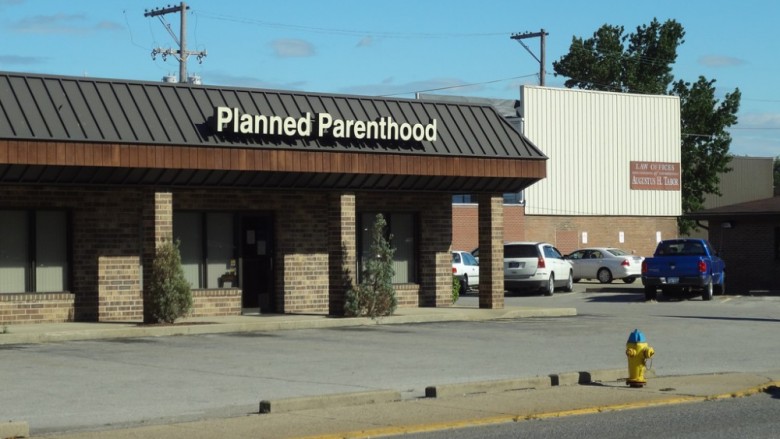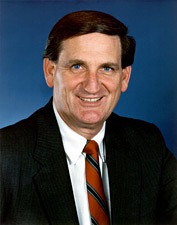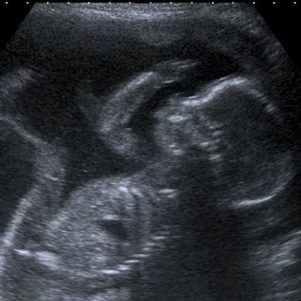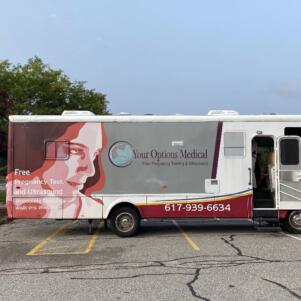Disclosure of fetal organ sales almost became law
By Evan Lips | August 8, 2015, 11:06 EDT

“The lawyers went to work,” he said, “as only lawyers can do. “They found a loophole: How can we sell this tissue, make a profit at the expense of this poor woman and hide it all by calling it research?”
The statement above is not recent. The statement was not made in response to the furor generated last month after a pro-life organization released a video documenting the harvesting and selling of fetal body parts by Planned Parenthood.
The statement is almost 16 years old and dates back to October 1999, when then-U.S. Sen. Bob Smith (R-NH) took to the floor of the Senate to speak in support of the Partial Birth Abortion Act, a bill that, if signed into law, would have prohibited late-term abortions conducted by means of partially delivering before terminating a live fetus, unless such procedure was necessary to save the mother’s life.
Shortly after President Clinton lifted the ban on fetal tissue research, Congress passed legislation prohibiting abortion providers from profiting from the sale of fetal tissue and organs to researchers.
Smith however was speaking on behalf of a proposed amendment to the bill designed to shine a light on the growing fetal body parts industry, an industry that has operated free from regulatory oversight for more than 20 years.
Prior to 1993, federal law prohibited the use of human tissue obtained from abortions for the purposesof medical research. That year, President Bill Clinton issued an executive order lifting the ban on fetal tissue research. Not wanting to incentivize abortion, however, Congress then passed legislation prohibiting abortion providers from profiting from the sale of fetal tissue and organs to researchers.
Specifically, the Prohibitions Regarding Human Fetal Tissue Act, signed by President Clinton in June 1993 made it “unlawful for any person to knowingly acquire, receive or otherwise transfer any human fetal tissue for valuable consideration.”
Six year later, Smith and others had become concerned that the abortion industry was exploiting a loophole in the law.
“[T]hey found it in section D(3),” Smith said in his Senate remarks.
That section “allows reasonable payments associated with the transportation, implantation, processing,preservation, quality control, or storage of human fetal tissue,” said Smith. “Because there is no documentation, no disclosure, no government oversight, this section has become a gigantic loophole to allow this industry to engage in the illegal trafficking of fetal tissue without prosecution.”
But abortion providers have exploited a loophole that allows “reasonable payments” associated with storage, processing, and delivery.
Smith’s 1999 amendment would have required federal oversight of the transfer of fetal parts in order to ensure that the entities involved were not actually profiting from the practice in violation of federal law.
In particular, it would have required anyone receiving fetal tissue to file reports with the Department of Health and Human Services, specifying the gestational age of the fetus, the abortion method used, the fees paid to the abortion clinic, and other information and would have limited the amount of “site fees” paid by tissue vendors to abortion clinics to amounts “reasonable in terms of reimbursement for the actual real estate of facilities used.”
Smith was concerned that vendors were paying inflated “site fees” in order to circumvent the law.
“We need a big beam of light to shine into this industry, to get into the darkness and find out what is going on in this for-profit industry,” Smith said. “We need some sunshine. We need it so badly.”
Smith’s 1999 attempt to require federal oversight of the fetal parts industry failed by a vote of 46-51. The amendment’s most vocal opponent was U.S. Sen. Barbara Boxer (D-CA).
Last month, more than 15 years after Smith delivered his remarks in the well of the Senate, some sunshine peaked out of the clouds when the Center for Medical Progress released the first of several undercover videos of Planned Parenthood officials explaining how the organization harvests and sells fetal tissue and intact organs.
To date, the Center for Medical Progress has released four videos and says they possess additional footage. The backlash against both the Center for Medical Progress and Planned Parenthood has been swift.
On July 28 a Los Angeles Superior Court judge issued a temporary restraining order prohibiting the Center from releasing any footage showing three unnamed officials from StemExpress, a California-based fetal tissue agency, recorded interacting with Planned Parenthood officials at a restaurant on May 22.
Earlier this week the Sacramento Business Journal reported that Colorado State University stopped doing business with StemExpress and other fetal tissue providers.
The Center for Medical Progress is not, however, the first group to go undercover to investigate the fetal body parts industry.
“Parts for sale.”
In 2000, the ABC News investigative series 20/20 aired an episode titled “Parts for Sale; People Make Thousands of Dollars off the Sale of Fetal Body Parts.”
In one of the segments, an ABC news producer posed as a prospective investor and secured a dinner meeting with Dr. Miles Jones, a Missouri pathologist with Opening Lines, a fetal organ distribution agency no longer in operation.
Unidentified Producer: “What does a brain go for? What does a kidney or liver go for?”
Jones: “It’s market force. It’s what can you sell it for. We had projections of $50,000 a week. And you know, some weeks you can hit that and some weeks you can’t. It’s just a matter of being able to match supply and demand. “ [Jones goes on to say he can fetch $2,500 for a single fetus] “That one fetus—the cost of procuring it is the same whether you get one kidney or you get two kidneys, a lung, a brain, a heart. It’s the same cost that you’ve put into it.”
Producer: “But you keep charging?”
Jones: “Each researcher gets charged.”
Producer: “And each time that’s just money in the bank?”
Jones: “Mm-hmm.”
After the interview drew publicity, Jones refused an order to testify before U.S. Congress. In 2008, acting U.S. Attorney General Jim Flory declared that Jones hadn’t broken any laws.
“Intact fetal cadavers.”
The fourth and latest video from the Center for Medical Progress, released Tuesday, was shot during an undercover meeting with Planned Parenthood’s Melissa Farrell, director of the agency’s Gulf Coast region.
The 119-page transcript documents the complete interaction between Farrell and a Center for Medical Progress actor posing as a prospective buyer.
At one point Farrell talks about the importance of securing an entire fetus and not just its organs.
Farrell: “And so if we alter our process – and we are able to obtain intact fetal cadavers, then we can make it part of the budget that any dissections are this, and splitting the specimens into different shipments is this, that’s it’s all just a matter of line items.”
[Farrel goes on to discuss what they would do if the buyer needed only part of the cadaver and the not whole fetus.]
Farrell: “It would be exciting too if you needed it dissected, because LaShonda and I are the most Curious George of the group. I know it’s sickening on some level, but it’s fun.”
All videos and transcripts are available to watch and read at the Center for Medical Progress’s website.
RELATED – Column: Planned Parenthood traffics not only in body parts, but in fear
Contact Evan Lips at [email protected]















